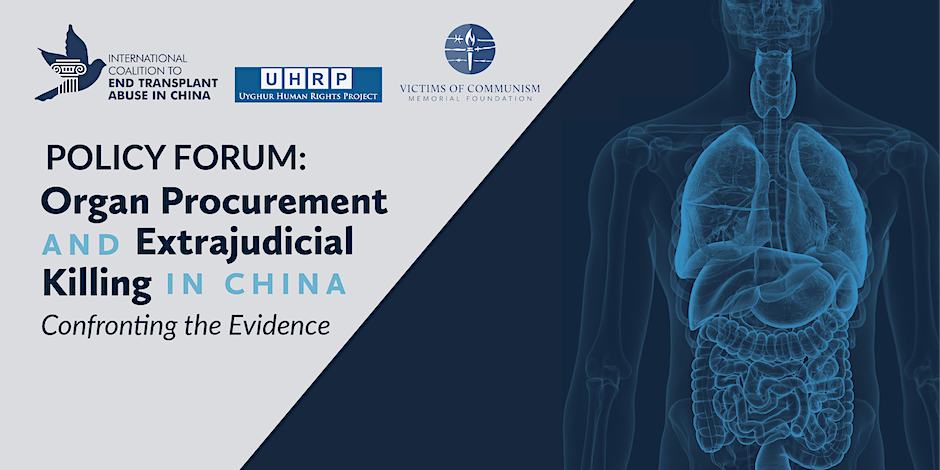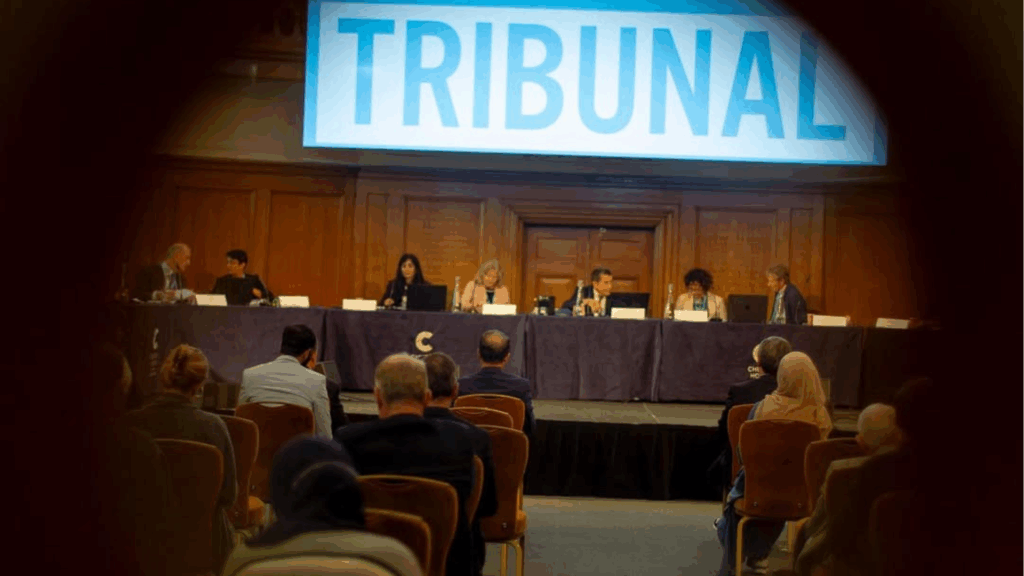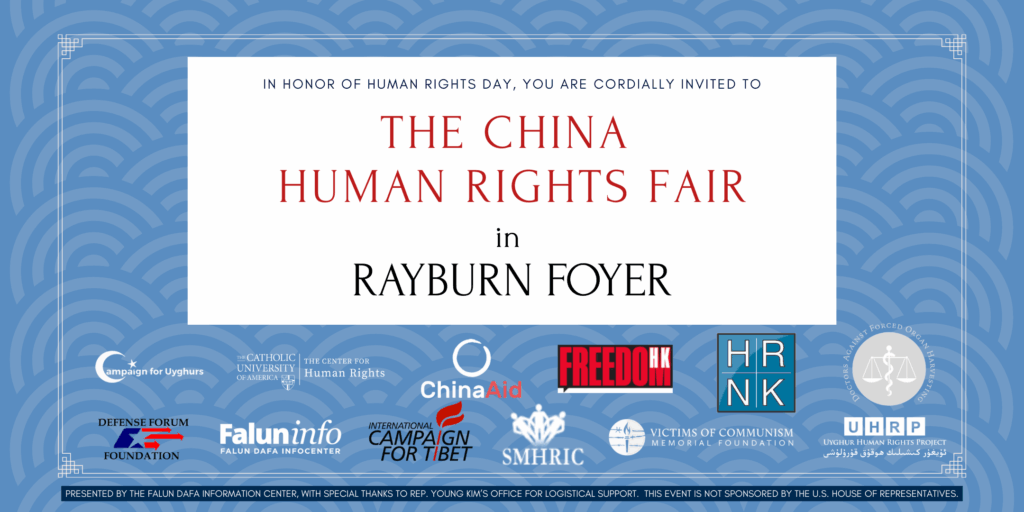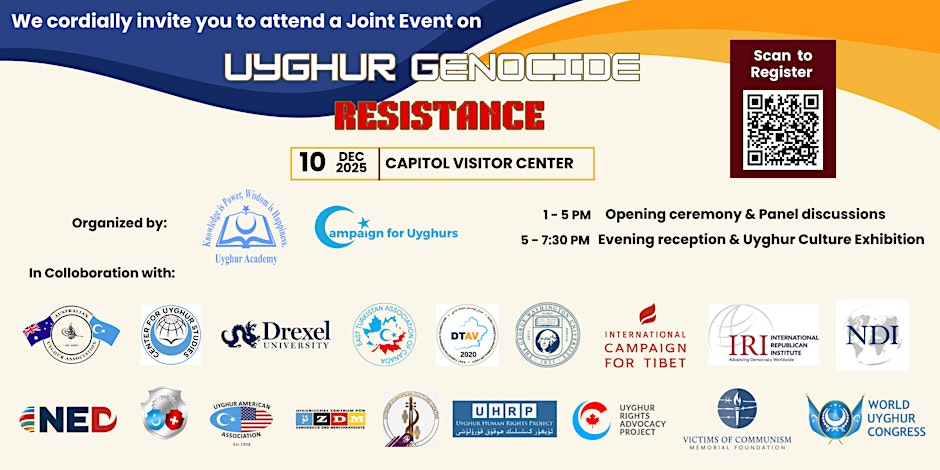Policy Forum: Organ Procurement and Extrajudicial Killing in China

Date and time: Tuesday, March 10, 2020 · 2:30 – 4pm EDT
Location: U.S. Capitol Visitor Center, Room HVC 215East Capitol Street & First Street NE Washington, DC 20515 United StatesShow map
About this event: Join us for a policy forum to confront the evidence on organ procurement and extrajudicial killing in China.
Featured participants include:
- Prof. Donald C. Clarke, Chinese law specialist, George Washington University
- Louisa Greve, Director of Global Advocacy, Uyghur Human Rights Project
- Ethan Gutmann, China Studies Research Fellow, Victims of Communism Memorial Foundation
- Susie Hughes, Executive Director, International Coalition To End Transplant Abuse In China
- Nadine Maenza, Vice Chair, United States Commission on International Religious Freedom
- Yu Ming, Falun Gong practitioner and survivor of Chinese labor camp
- Sir Geoffrey Nice QC, former Barrister and International Criminal Tribunal
- Matthew P. Robertson, China Studies Research Fellow, Victims of Communism Memorial Foundation
- Marion Smith, Executive Director, Victims of Communism Memorial Foundation
- Mihrigul Tursun, Uyghur Muslim detained in Chinese “political re-education” camp
Co-Hosts: International Coalition to End Transplant Abuse in China (ETAC), Uyghur Human Rights Project, Victims of Communism Memorial Foundation
Speakers:
Prof. Donald C. Clarke is a specialist in Chinese law at George Washington University. He has published extensively in journals such as the China Quarterly and American Journal of Comparative Law on subjects ranging from Chinese criminal law and procedure to corporate governance. His recent research has focused on Chinese legal institutions and the legal issues presented by China’s economic reforms. In addition to his academic work on Chinese law, Professor Clarke founded and maintains Chinalaw (formerly Chinese Law Net), the leading Internet listserv on Chinese law, writes the Chinese Law Prof Blog, is a co-editor of Asian Law Abstracts on the Social Science Research Network, and has often served as an expert witness on matters of Chinese law.
Louisa Greve is Director of Global Advocacy for the Uyghur Human Rights Project. She has traveled and worked in China since 1980. She is also Washington Fellow for CSW, a UK-based advocacy group promoting freedom of religion or belief for all peoples and faiths. Previously, she was Vice President for Programs and East Asia Director at the National Endowment for Democracy. She is the author of several book chapters on ethnic issues and human rights in China and has testified before Congress on democracy in Asia.
Ethan Gutmann, an award-winning China analyst and human-rights investigator, is China Studies Resarch Fellow at the Victims of Communism Memorial Foundation and the author of Losing the New China and The Slaughter. He has written for publications such as the Wall Street Journal Asia, The Weekly Standard, National Review, and Investor’s Business Daily, while providing testimony and briefings to the United States Congress, the Central Intelligence Agency, the European Parliament, the United Nations, and the parliaments of Ottawa, Canberra, Dublin, Jerusalem, Prague, Edinburgh, and London. A former foreign-policy analyst at the Brookings Institution, Gutmann has appeared on PBS, CNN, BBC, and CNBC. He was nominated for the 2017 Nobel Peace Prize.
Susie Hughes is executive director and co-founder of the International Coalition To End Transplant Abuse In China (ETAC), and is based in Australia. She has extensive experience in the not for profit human rights sector focusing on the issue of forced organ harvesting from prisoners of conscience in China. Hughes was a member of the ETAC Steering Committee responsible for initiating the China Tribunal. She has testified before the Australian Parliament on organ trafficking and transplant tourism, and freedom of religion and belief, and has hosted numerous roundtable discussions, Q&A forums and online seminars on forced organ harvesting in China. Susie has also worked in the private education sector as a teacher, teacher trainer, school administrator and board member.
Nadine Maenza is Vice Chair of the U.S. Commission for International Religious Freedom (USCIRF), a position she has held since June 2019. She is a noted speaker, writer, and policy expert with more than two decades of experience as an advocate for working families and a champion for international religious freedom. Maenza is also the founding Executive Director of Patriot Voices, where she has provided her expertise to shape the organization’s special emphasis on public policies that help working families. In addition to speaking at several conferences abroad on Freedom of Religion or Belief, she has also represented USCIRF in delegations to Egypt, Saudi Arabia, Myanmar, Bahrain, Indonesia, Iraq, and Uzbekistan.
Yu Ming is a human rights investigator and activist based in San Francisco. Yu arrived in the United States in early 2019 as a political asylee. In late 2018, prior to fleeing China, he engaged in a months-long investigation of organ transplantation activities at civilian, military, and paramilitary hospitals in Beijing, using undercover cameras to capture admissions about organ availability and short wait times. Yu has himself been detained for his practice of Falun Gong, during which time he was severely tortured and subjected to highly suspicious blood tests. He has spent nearly eight years in labor camps and prisons. Prior to this he was a successful entrepreneur.
Sir Geoffrey Nice QC was called to the Bar in 1971, and practised as a barrister until 1998 when he was recruited to the International Criminal Tribunal for the former Yugoslavia – ICTY – by Justice Louise Arbour (later UN High Commissioner for Human Rights). He prosecuted a number of cases relating to genocide, and in November 2001 led the prosecution of Slobodan Milošević, former President of Serbia, until the end of that trial in 2006. He was knighted in 2007 for services to International Criminal Justice. Much of his work since has been connected to cases before the permanent International Criminal Court – Sudan, Kenya, Libya – or pro bono for victims groups – Iran, Burma, North Korea – whose cases cannot get to any international court. He works for several related NGO’s and lectures and commentates in the media in various countries on international war crimes issues. He has been a part-time judge since 1984 sitting at the Old Bailey and has sat as judge in other jurisdictions, tribunals and inquiries. Between 2009 and 2012 he was Vice-Chair of the Bar Standards Board, the body that regulates barristers.
Matthew P. Robertson is a China Studies Research Fellow with the Victims of Communism Memorial Foundation. He is concurrently a PhD student in political science at the Australian National University in Canberra. His research interests include biopolitics, political violence, and authoritarian politics; his dissertation, using computational methods and process tracing, explores the political logic of state control over citizen bodies in the case of China’s organ transplantation industry. Previously he has worked as a reporter, researcher, and translator for several nonprofit organizations, and as an interpreter (from Chinese) for financial services firms. His research using statistical forensics to demonstrate the falsification of Chinese organ donor registry data was published in the leading journal of medical ethics, BMC Medical Ethics. Other peer-reviewed publications he has co-authored have appeared in BMJ Open and The BMJ.
Marion Smith is a civil society leader and expert in international affairs, and has been executive director of the Victims of Communism Memorial Foundation since March 2014. As Executive Director, he provides strategic leadership for VOC and spearheads its educational initiatives. He is also founding president of the Common Sense Society, an international foundation that promotes civic engagement, entrepreneurship, and leadership virtues among young professionals in the United States and Europe. Smith is a native of South Carolina and chairman of the National Civic Art Society. He was previously a visiting fellow at the B. Kenneth Simon Center for Principles and Politics at the Heritage Foundation. His articles have appeared in publications including USA Today, The Hill, The Washington Post, The Wall Street Journal, and the National Review. He is a regular guest analyst on major network and cable television news channels, including ABC, NBC, MSNBC, Fox News, and CNN.
Mihrigul Tursun is a survivor of the CCP’s re-education camps. Tursun was born in Cherchen County in the south of Xinjiang. When she was 12 years old, she was taken to Guangzhou for middle school as part of the CCP’s forced relocation of Uyghur children into inner China, where she experienced constant humiliation and discrimination. She eventually left to study in Egypt, where she met her husband. Upon returning to China with her family, she and her children were immediately detained, and there is strong evidence that her eldest son, who was 4 months old at the time, was murdered by the CCP. Though Tursun was later released, she was detained two other times in re-education camps, where she was tortured. She has previously testified about her experience in front of the Congressional-Executive Commission on China and received the Citizen Power Award in December 2018.

UHRP Marks Uyghur Genocide Recognition Day 2025 with Call for Sustained Global Action

UHRP Co-Sponsored Event: China Human Rights Fair

Four Years After the Genocide Judgment: Reflections on the Uyghur Tribunal

Uyghur Genocide Resistance
FEATURED VIDEO
Atrocities Against Women in East Turkistan: Uyghur Women and Religious Persecution
Watch UHRP's event marking International Women’s Day with a discussion highlighting ongoing atrocities against Uyghur and other Turkic women in East Turkistan.
